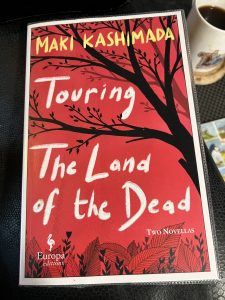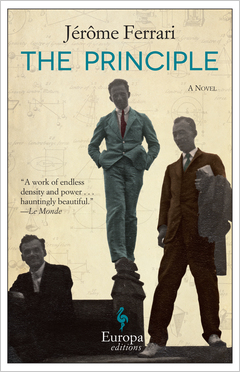The House on Via Gemito by Domenico Starnone
Italian Fiction
Original title – Via Gemito
Translator – Oonagh Stransky
Source – Review copy
When the longlist was announced for the Booker International this year, I wished I HAD FINISHED THIS BOOK. I am a reader who sometimes struggles with books over 400 pages these days as I haven’t always had the patience to get through a long book. So I had asked for this as Starnone from the lovely publicist at Europa as it appealed to me. He is often thought as a possible name for that question that crops up an lot who is Elena Ferrante, as he lives and has spent most of his life in Naples. But his wife is also considered another writer who could be her. So this is one OI had wanted to read. But when I started reading this book last year, it wasn’t grabbing me. I just maybe wasn’t in the mood for it, even when. In reading it this time, it may need a closer, slower reading. But I liked the world he painted of Fwedrfi and his dreams of being a painter
Because, although he was a railroader, he thought about nothing but the exhibition he was preparing. And indeed, when he was good and ready, he came home, shut himself in, told the station that he had rheumatic fever, gastritis, or any number of other ailments, and spent his time painting line signals, junc-tions, sidetracks, cattle cars, railyards, depots, and railheads. I remember each and every one of his paintings: my grandmother, brothers, and I slept in the same room where he painted, the dining room, where his monumental easel stood surrounded by his paintbox and canvases. I used to fall asleep staring at those visions, they seemed beautiful to me; I wish I could find them.
The apartment and his dads world
The t tile refers to the small APartment in which Fedri is a railway clerk. But he is also a dreamer who dreams. He is the lost artist just waiting to be discovered. A man sat at times driven to get his dream, but along with this, this is the violence and effect of a man set on the dream of being a painter. The book’s first part is told from the point of view of his son Mimi and the -pressure of living with a man whose dream will never happen you feel. What we also get along in the family saga is the city itself. In his Porse, Starnoine paints the town if only his character was as good with his brush as his prose. He is a man who is trying, alongside his painting, to climb the ladder of being a rail worker. This is a man drawn to drink but also a man that had a lost dream and we see that it is at heart the story of a father and son and the Naples of the post world war two era. Fathers and sons do not want to be their fathers. This story is partly based on the writer’s own life. But Mimi hopes for his father to be seen and gain his dreams to make him happier than the drinking bully he is.
My days in Naples flew by. At night I scribbled down a mess of notes and kept saying to myself, tomorrow I’ll go look for The Drinkers. But then the following morning I’d wake up and change my mind: today I want to go back to Via Gemito, to see that railroad-owned building where we lived, and the window that my father looked out of while he painted.
The metro station was less than a hundred meters from my brother’s house. It was easy: all I had to do was descend into the abyss, with its pleasant grey walls and yellow handrails, its red bricks and the smooth black rubber pavement that smelled new, like everything down there, get on the first train, and get off at Piazza Medaglie d’Oro. From there, one morning, I strolled idly to Piazza Antignano, and observed the dilapidated old buildings,loitered aroun the market, no difference after all these years, and slowly made my way to Via Gemito
Naples a;ways in the bacground of the story
There has been an undercurrent of Autofiction in this year’s longlist. This book loosely uses part of Starnone’s childhood. His father was a mildly successful painter. One of his paintings was called The Drinkers, like a painting in the book. This is a son looking back and rewriting his childhood. His working-class father was a tough man who had boxed and was harsh on his son. This is also full of the same city we love from Ferrante. Naples is a place that seems to have a culture of its own whenever I read about it! This made our shortlist but hadn’t gone further in the Booker longlist. Which is a shame I maybe marked it Harshly in our own shortlist scoring round, I just have a feeling I have read it nearly twice I was about halfway through last year and have read it all this year and still it hasn’t grabbed me as I hoped. But if you like a working-class male take on the same city as Ferrante and her characters live in, this is the book for you! Do you ever as a reader have this feeling when you have read a book? I will try his books again. I have a couple on my shelves to read. Have you liked any of his other books ?
Winston’s score – B great in parts, but it just didn’t fully connect with this book


















